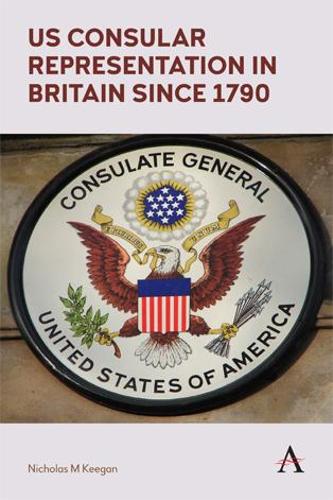
US Consular Representation in Britain since 1790
(Paperback)
Available Formats
Publishing Details
US Consular Representation in Britain since 1790
By (Author) Nicholas M Keegan
Foreword by Barbara Stephenson
Anthem Press
Anthem Press
8th March 2018
United Kingdom
Classifications
Professional and Scholarly
Non Fiction
327.73041
Physical Properties
Paperback
340
Width 153mm, Height 229mm, Spine 26mm
454g
Description
In its early years the United States Consular Service was a relatively amateurish organization, often staffed by unsuitable characters whose appointments had been obtained as political favours from victorious presidential candidatesa practice known as the Spoils System. Most personnel changed every four years when new administrations came in. This compared unfavourably with the consular services of the European nations, but gradually by the turn of the twentieth century things had improved considerablyappointment procedures were tightened up, inspections of consuls and how they managed their consulates were introduced, and the separate Consular Service and Diplomatic Service were merged to form the Foreign Service. The first appointments to Britain were made in 1790, with James Maury becoming the first operational consul in the country, at Liverpool. At one point, there was a network of up to ninety US consular offices throughout the UK, stretching from the Orkney Islands to the Channel Islands. Nowadays, there is only the consular section in the embassy and the consulates general in Edinburgh and Belfast.
Reviews
Nicholas Keegans US Consular Representation in Britain since 1790 is a masterful addition to American diplomatic history. It examines the consular branch of the United States in its most important ally in great detail from the immediate post-revolutionary years to 2017. He also describes the US consular system, its growth and its problems, warts and all. Charles Stuart Kennedy, Oral History Director, Association for Diplomatic Studies and Training, Arlington, Virginia, USA
' a substantial contribution to the history of US diplomacy from 1790 to 2018 the scholarly value of the work is enhanced by the detail on the individual consulates which will make this book essential for anyone doing research in Anglo-American diplomatic relations [the] work stands not only as an invaluable contribution to US diplomatic history in its own right, but provides scholars with new sources, ideas for future research.' Bernadette Whelan, Professor, University of Limerick, Ireland.
The book 'opens the door to forgotten and untold accounts of America's presence in the United Kingdom - telling stories our early consuls never told about themselves or even dreamed would be of interest to modern readers' Ambassador Barbara Stephenson - at the time, President of the American Foreign Service Association
Author Bio
Nicholas M. Keegan, a former civil servant, has spent many years researching consular representation, first for his PhD, and then for the present book.
